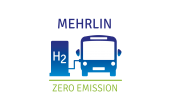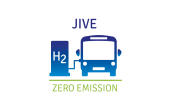
International energy forecasts promise a bright future for hydrogen as an energy carrier. When produced sustainably, hydrogen offers a variety of advantages:
- Ecology: low emissions, low noise;
- Energy: it is not a fossil fuel;
- Innovation high-tech development;
- Economy: new industry;
- Autonomy: less dependent on oil cartel countries
Fuel Cell and Hydrogen (FCH) technologies hold great promise for transport applications from the perspective of meeting Europe’s environmental challenges. The European Union is committed to transforming its transport as part of a future low carbon economy. It is recognised that FCH technologies have an important role in this transformation and they are part of the Strategic Energy Technologies Plan (SET) Plan adopted by the European Council. This is in line with the European Commission’s (EC) Communication “Energy for a Changing World – An Energy Policy for Europe”, the goals of the Lisbon Strategy and the European Strategic Transport Technology Plan. Fuel cells, as an efficient conversion technology, and hydrogen, as a clean energy carrier, have a great potential to contribute to addressing energy challenges facing Europe. They will allow renewable energy technology to be applied to transport.






